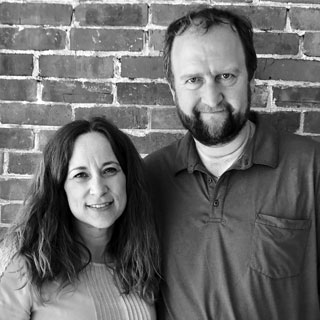
Deny Yourself: My Story of Self-Denial & Abundant Life

I still remember the moment I heard the words of Mark 8, grasping their significance for the first time. Sitting amongst peers while at university – I was largely preoccupied by ambition and my pursuit of excellence.
I didn’t know a lot back then about what it means to follow Jesus, but I did know Jesus as the Saviour who pulls little children closer, drowning out harshness with His greatness. His hands had sheltered my heart throughout my youth and brought along gifts of companionship, discipleship, and understanding. I felt cherished by Jesus and it was his inordinate compassion towards me that kept me tethered to Him.
“Whoever wants to be my disciple must deny themselves and take up their cross and follow me.” -Mark 8:34
Deny - the word sprang out at me, convicting and exposing me.
What did that mean?
I was well positioned to pursue the American Dream and succeed at it, and denying myself in any way was not really part of the plan. So tangibly struck, I fumbled to respond to those words within our group, finally landing on, “I don’t think I’m doing that”.
“For whoever wants to save their life will lose it, but whoever loses their life for me and for the gospel will save it.” -Mark 8:35
Oh boy, somehow denying myself was connected to losing my life and that was not anywhere on my to-do list. I was on track for a comfortable life, full of all the perks of a first-world society, with no regard for the reality that no one avoids suffering anyway.
Syncretism in Missions
In missions we often talk about syncretism – the mixing of two different religions or world views. It’s often mentioned in the context of establishing a church in a community that holds tightly to an animistic worldview; it can be difficult for new hearers of the Gospel to fully let go of their traditional beliefs.
But syncretism is not just “out there”; it's right here amongst us.
The message of live-your-best-life strangely makes its way into our teams and organizations and our so-called self-denial shows up as holier-than-thou interactions, unspoken celebrity status, and “Christian” prestige.
We know how to leave our homes, forgo careers, even put our safety and health at risk. But self-glory is tough to give up.
That word “deny” sank into me, and it didn’t fit well. I tried hard, but I simply could not squeeze it in right next to my self-protection, self-focus, and self-glory. And while I desperately wanted to rationalize my selfishness, I could not shake the feeling that I was either going to deny myself or I was going to deny my experience of Christ’s compassion...life itself.
What I’ve Learned about Denying Myself
Over the last 20+ years, I’ve learned a few things about denying myself, and as much as I could sort of figure it out, I’ve at least tried to apply this passage.
I certainly felt like I was denying myself when I left home and a nicely paying job to pursue missions, when I was sweating in the heat of West Africa - killing cockroaches and armies of ants - and while I continued in ministry though much disillusionment, heartache, and grief. But what I’ve learned the most over the years is that denying myself starts deep within my heart.
Jesus calls me to boldly deny my self-righteousness, my arrogance, my desire to reject those I don’t understand, and my default to hate those who have hurt me.
Actually, denying myself and following Jesus leads me straight towards loving others; it leads me to the compassion of Christ I know so intimately – and not only towards the nations and people at large, but all the more my brothers and sisters in Christ, with whom I am called to work alongside to proclaim the Gospel.
It doesn’t just require me to give up material things, lifestyles, or personal plans. It requires me to deny my sinful mind and proud heart from determining how I will interact with others.
It means that every day, all day, I must make internal choices that value others over myself.
Most of the time, no one even knows the battles I fight.
But Jesus knows.
And He reminds me that it is okay for me to deny myself because my heart is safe with Him.
Self-Denial in Missions Culture
In 1 Corinthians 6, Paul alludes to this concept; in response to believers taking each other to court, Paul says that for the sake of the Gospel it would be better to let ourselves be wronged. That’s not to say that we condone sin, but as it turns out, being right is not the primary goal, being better than each other is not the goal – proclaiming and demonstrating the radical love of Jesus is.
All of this is hard, certainly because it doesn’t come naturally, but also because our Christian and mission cultures allow for a bit of syncretism – a mixture of the Gospel with the dark side of the American dream. Without really thinking about it, we allow for self-serving policies to be created, spiritual elitism to be presumed, subtle shaming to be normalized, and competition within ministries to be acceptable. In other words, we’ve made room for the pursuit of self - in leadership, on the frontlines, and everywhere in between.
I wonder sometimes how Paul would respond to the ways we relate to each other through our infrastructures, boardroom meetings, individual conversations, and private emails. As we grapple with differences of perspective, who is in the centre of those discussions? And I wonder if we forget that proclaiming the Gospel starts with rejecting our conceited hearts and embracing the meekness and gentleness of Jesus - bringing Him into every word we speak and attitude we carry.
Self-Denial & Missionary Care
My husband and I have been serving in the ministry of Member Care for about 12 years now. Together we’ve cared for fellow missionaries through all sorts of formal and informal methods – workshops, debriefing, middle-of-the night texts, and hours of wading into the hardships of others.
But that’s been the easy part.
The hard part has been that it’s forced me to think a lot about how I can genuinely love all of my brothers and sisters in Christ – the ones that think through issues differently than me, the ones that seem to excel more than me, the ones that challenge my thresholds, and even the ones who have offended me – and I find that Jesus draws me back to Mark 8 and to what it means to follow Him.
And he calls me to work hard at understanding, reject my self-righteousness, practice transparency, allow myself to be stretched uncomfortably, actively honor others, rejoice in their victories, and above all, above all, move towards profound humility.
These are the ways we courageously care for each other. And much to my surprise, these unnatural life-transformations have also been supernaturally life-giving.
Self-Denial & Abundant Life
So, what does self-denial look like?
The answers to that are great, told through the brave stories of men and women whose names I largely don’t know because self-denial does not include making a name for ourselves.
For some of us, it will mean giving up our career, our home, our dreams.
For all of us, it means denying our self-centered hearts and picking up our crosses with bold humility and courageous care.
But what is counterintuitive about it all is that as we focus on magnifying the name of Jesus and stop worrying about our own name - going against the grain of society and our own inclinations - we indeed experience the abundant life that we all long for.
 Alicia has served in missions for 20 years along with her husband Brian, both overseas and in Canada. She has been serving in Member Care since 2012 and cares deeply about the health and wellbeing of missionaries and their families. Besides caring for their five kids, she serves with the MORE Network, alongside Brian, providing administrative support and hosting/caring for missionaries. She has a Master of Theological Studies and enjoys studying and teaching the Bible.
Alicia has served in missions for 20 years along with her husband Brian, both overseas and in Canada. She has been serving in Member Care since 2012 and cares deeply about the health and wellbeing of missionaries and their families. Besides caring for their five kids, she serves with the MORE Network, alongside Brian, providing administrative support and hosting/caring for missionaries. She has a Master of Theological Studies and enjoys studying and teaching the Bible.